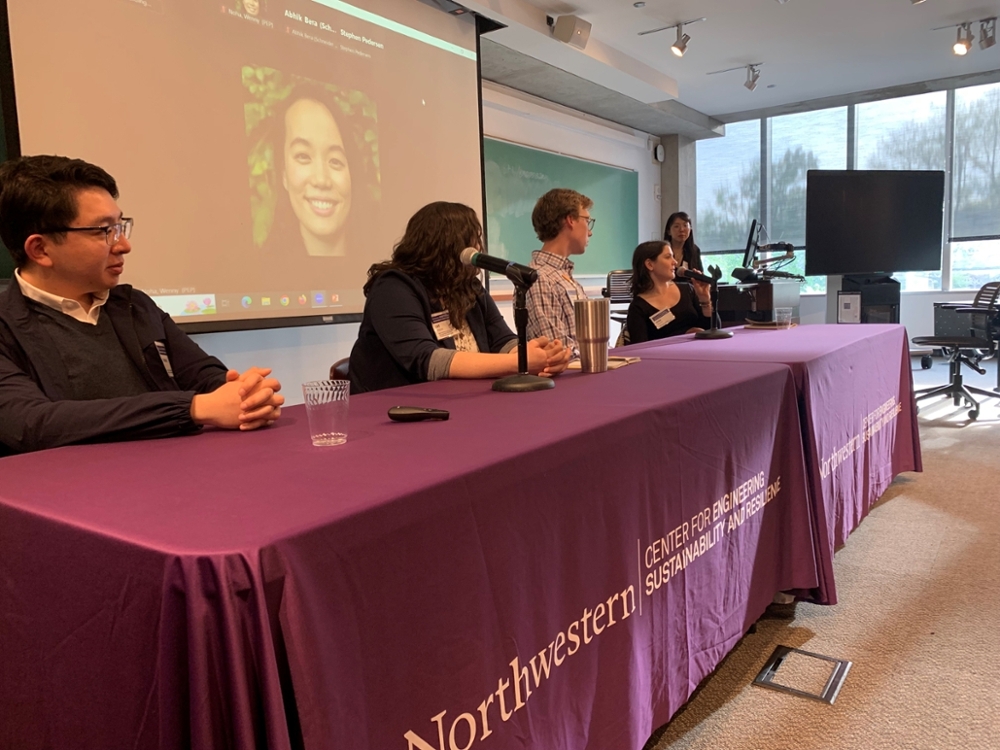CESR Hosts Sustainability Career Panel for McCormick Undergrads

Entering the job market can be daunting, especially for students seeking engineering careers with a strong emphasis on sustainability. On Monday, May 15th, CESR invited a panel of five McCormick alumni and a current post-doctoral fellow to share their experiences doing just that. Ryan Albelda of Amazon (BS, IEMS and ES), Abhik Bera of Schneider Electric (MEM), Peter Hosbein of Tesla (BS, MSE), Cat Majors of NU ChBE (PhD, Rice BME), Wenny Noha of PepsiCo (BS, ChBE), and Thomas Yu of UniverCell (BS and PhD, MSE) demonstrated that sustainability-focused careers are attainable for students with the passion and drive to find them, whether those interests crystallize during their undergraduate education or take a few years after graduation to emerge.
For several of the panelists, these careers represent a departure from where they started out in their undergraduate studies. Noha discovered a passion for the environment after accepting a manufacturing job with PepsiCo after graduation, with a stint at AmeriCorps and a Master’s in Environmental Science positioning her to return to PepsiCo for work in water sustainability. Bera entered the petroleum industry before having a change of heart, earning his Master’s, and working in microgrids. Hosbein did extensive work with batteries in school and in his first position before transitioning to a design and modeling-focused position at Tesla. Albelda branched out from an initial focus in environmental science to IEMS, and worked up into a sustainable supply chain position at Amazon.
Rather than finding the sustainability space restrictive, each panelist encouraged students to take risks and explore, confident that the sustainability boom can accommodate an evolution in approach. Job titles and descriptions may not explicitly focus on sustainability but a clever engineer can find a more sustainable and cost-effective solution to a given problem regardless of job title. As Ryan Albelda emphasized, a company will appreciate a sustainable solution when it is also the more efficient or cheaper solution. A few panelists discussed ways in which they are able to connect sustainable alternatives to their companies’ existing practices. Majors’ research focuses on testing and analysis of human populations in low-infrastructure areas, meaning that services like electricity and chemical waste disposal that are required for the testing are often not available. Reducing the need for complex instruments and high-waste testing processes serves the research goal by incorporating sustainable practices.
Curiosity and passion drive many of the panelists’ stories, from their time at Northwestern to the present. Panelists pointed to experiences with undergraduate research and NUVention as helping build their awareness of their unique strengths and what interests them. Building soft skills and broad academic interests while at school positioned many of them for careers they might not have originally considered or even knew existed, with engineering skills serving as a strong foundation for even a mid-career pivot into a new area. The Northwestern alumni network also served as a powerful resource for Hosbein and many others, and CESR thanks each of our panelists for furthering this mentoring tradition on Monday and going forward.
